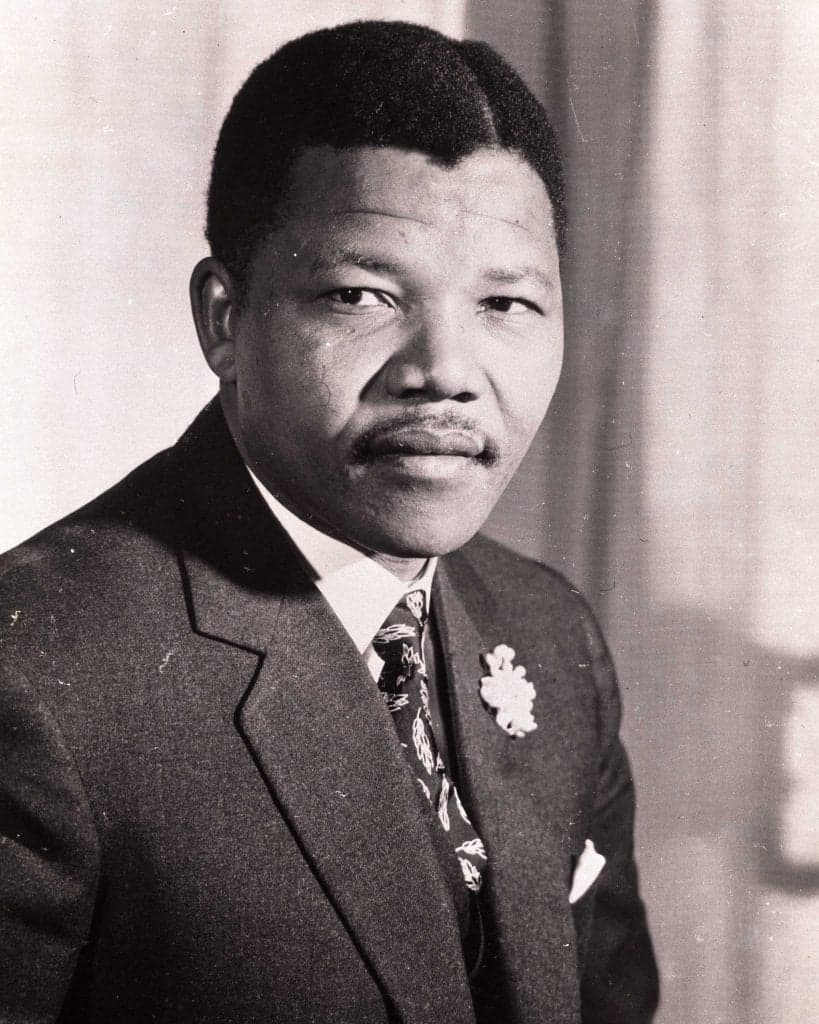Nelson Mandela, leader of the movement to end South African apartheid, is released from prison after 27 years on February 11, 1990.
In 1944, Mandela, a lawyer, joined the African National Congress (ANC), the oldest Black political organization in South Africa, where he became a leader of Johannesburg’s youth wing of the ANC. In 1952, he became deputy national president of the ANC, advocating nonviolent resistance to apartheid—South Africa’s institutionalized system of white supremacy and racial segregation. However, after the massacre of peaceful Black demonstrators at Sharpeville in 1960, Nelson helped organize a paramilitary branch of the ANC to engage in guerrilla warfare against the white minority government.
In 1961, he was arrested for treason, and although acquitted he was arrested again in 1962 for illegally leaving the country. Convicted and sentenced to five years at Robben Island Prison, he was put on trial again in 1964 on charges of sabotage. In June 1964, he was convicted along with several other ANC leaders and sentenced to life in prison.
READ MORE: The Harsh Reality of Life Under Apartheid in South Africa
Mandela spent the first 18 of his 27 years in jail at the brutal Robben Island Prison. Confined to a small cell without a bed or plumbing, he was forced to do hard labor in a quarry. He could write and receive a letter once every six months, and once a year he was allowed to meet with a visitor for 30 minutes. However, Mandela’s resolve remained unbroken, and while remaining the symbolic leader of the anti-apartheid movement, he led a movement of civil disobedience at the prison that coerced South African officials into drastically improving conditions on Robben Island. He was later moved to another location, where he lived under house arrest.
In 1989, F.W. de Klerk became South African president and set about dismantling apartheid. De Klerk lifted the ban on the ANC, suspended executions, and in February 1990 ordered the release of Nelson Mandela.
Mandela subsequently led the ANC in its negotiations with the minority government for an end to apartheid and the establishment of a multiracial government. In 1993, Mandela and de Klerk were jointly awarded the Nobel Peace Prize. One year later, the ANC won an electoral majority in the country’s first free elections, and Mandela was elected South Africa’s president.
Mandela retired from politics in 1999, but remained a global advocate for peace and social justice until his death in December 2013.
READ MORE: Nelson Mandela: His Written Legacy

